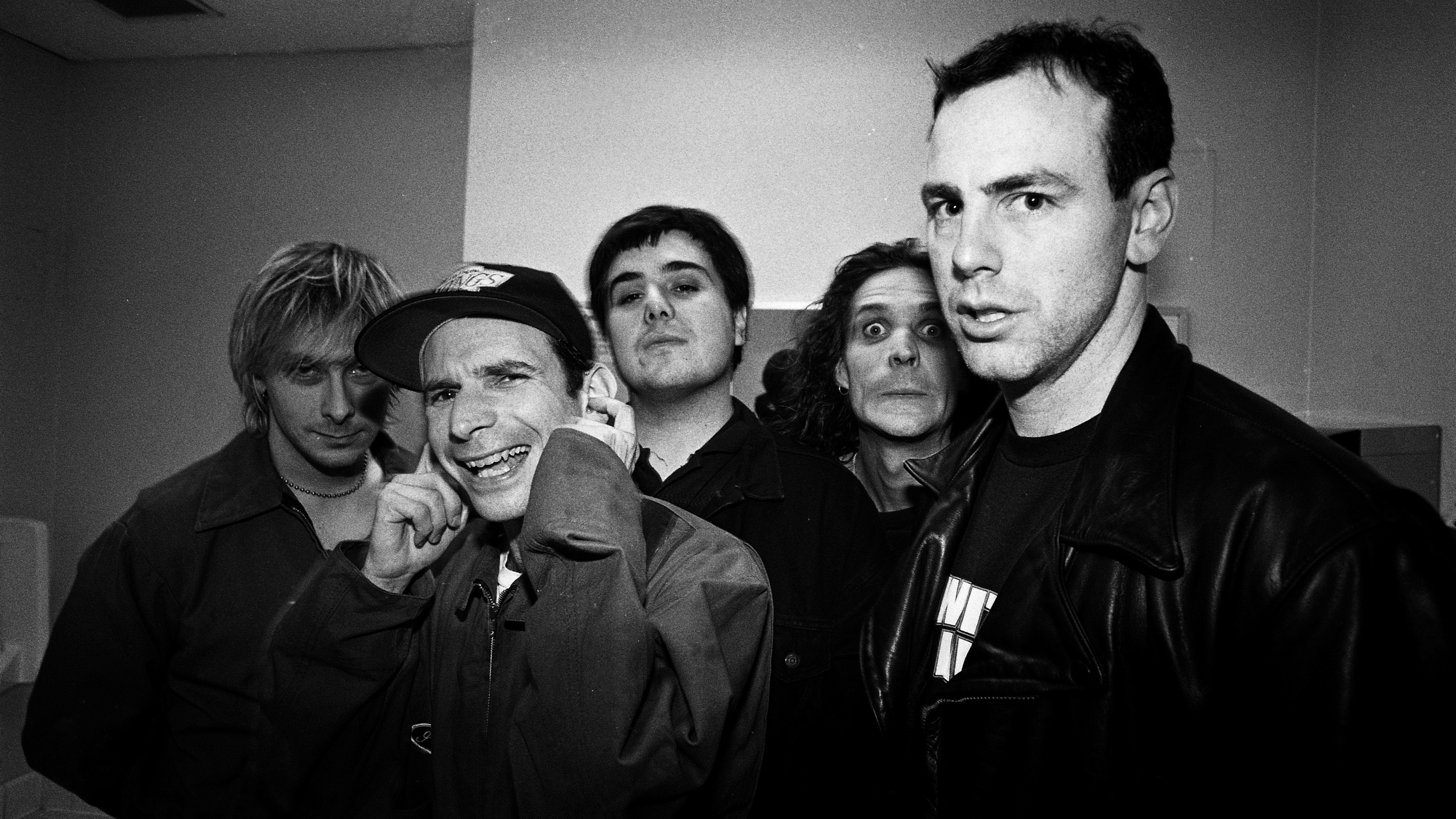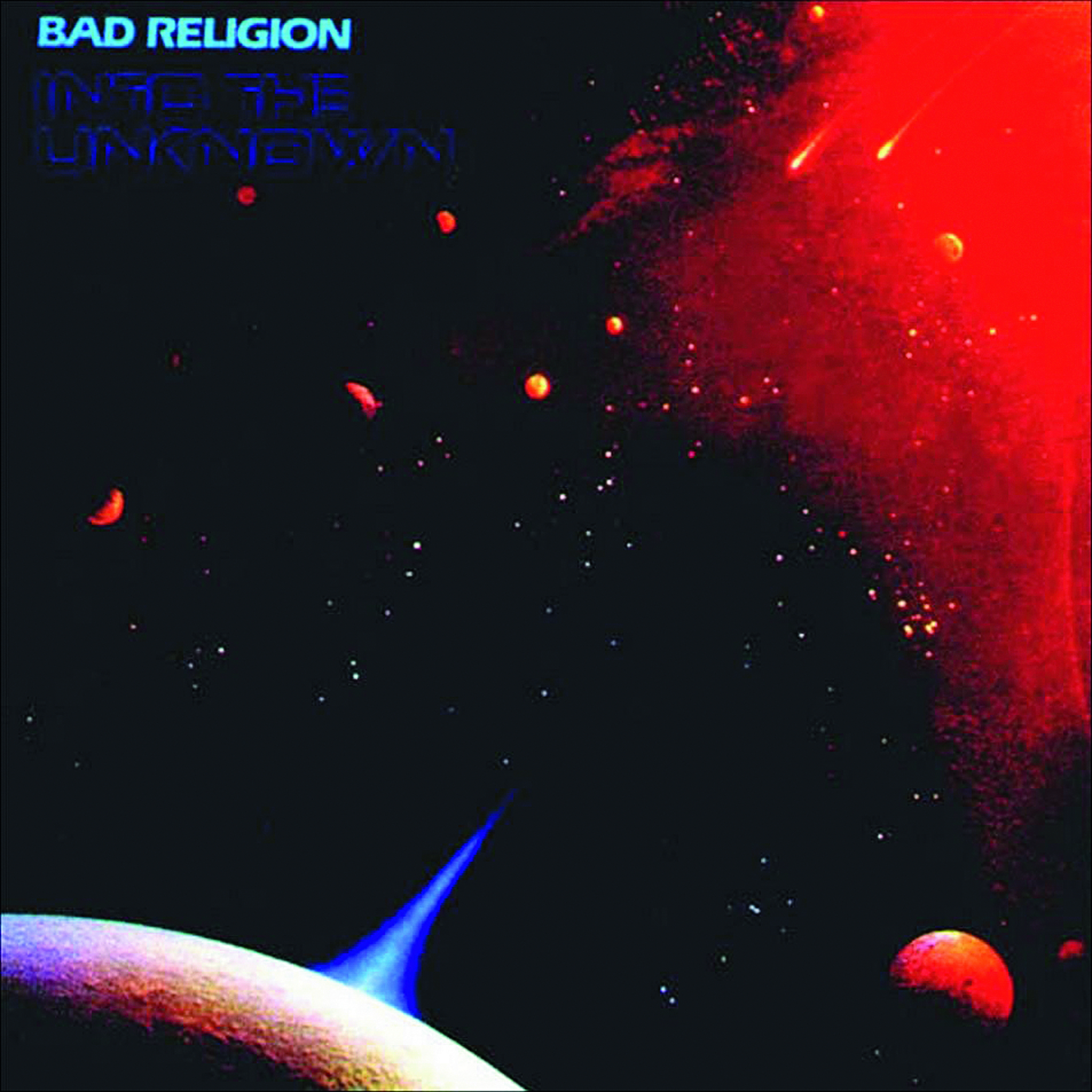
Second generation California punks Bad Religion released their 1982 debut, the rudimentary scratch of How Can Hell Be Any Worse on their own Epitaph label, set up by BR founders Greg Graffin (vocals) and Brett Gurewitz (guitar). Five years later they’d regroup for their classic album Suffer. Released in 1988 it would revitalise US punk, birthing the Southern California melodic punk scene – which would later see the likes of Green Day, Blink 182, The Offspring and NOFX go on to meteoric success.
However, Bad Religion’s career was almost over after the apparent exceptional misfooting of their second release, appropriately-titled Into The Unknown. Despite heralding an enormous musical step forward from their debut, its heavy space rock themes, tinged with synths and organs, made it a definite prog release, from its swirling soundscapes, buried vocal harmonies, mystic song titles like Time And Disregard, Chasing The Wild Goose, Billy Gnosis and The Dichotomy, right down to its interstellar sleeve art. The band were attempting to escape the confines of what, by 1983, had become a generic and stale punk scene. But its release was welcomed with as much enthusiasm by Californian punks as if a Nazi had yakked on Darby Crash’s grave.

Both Graffin and Gurewitz had always been prog fans. Gurewitz named Epitaph after the King Crimson track, and when BR stepped away from the full-throttle assault of Suffer and its follow-up No Control, they would show their prog influences – from the title of 21st Century Digital Boy (Against The Grain, 1990), up to Bored & Extremely Dangerous (The Process Of Belief, 2002) with its discordant interval influenced by Pink Floyd’s Time.
Hedging their bets, BR returned with an EP of their usual punk in 1985, humourously-titled Back To The Known. But following Into The Unknown, the songs showed a more mature and rounded punk sound, which would be cemented with 1988’s Suffer – when the So Cal melodic punk template was set. Far from killing it off, punk rock appropriated the envelope-pushing ideology and sound of prog to evolve out of its own self-defeating musical ghetto, and ultimately – in the cases of Green Day and The Offspring – into the mainstream.







